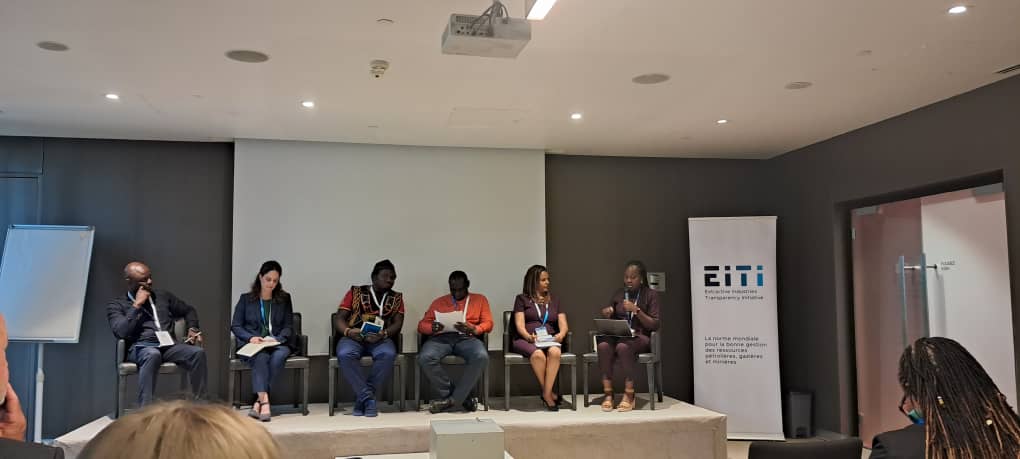Date

African governments have been challenged to demonstrate political will and pursue transformative tax policies and value-addition strategies to maximise the benefits of Africa’s transition minerals for the continent and its people.
This was a rallying call from the 2023 Extractive Industries Transparency Initiative (EITI) Global Conference in Dakar, Senegal. Over 1000 stakeholders attended the conference which took stock of achievements in natural resource transparency and how the EITI should adapt to a changing energy landscape and growing demand for an open and accountable resource sector.
At the conference, TJNA in collaboration with the Africa Centre for Energy Policy (ACEP), the African Forum and Network on Debt and Development (AFRODAD), and EITI Secretariat convened a side event that explored innovative strategies that could significantly bolster tax revenue collection within the mining sector while ensuring transparency and equitable economic growth.
The panelists at this session included Ibrahima Aidara from Open Society Foundation, Dr Marit Kitaw from Africa Mineral Development Center, Dr Yungong Theophilus Jong from AFRODAD, Ben Boakye from Africa Center for Energy Policy, Maria Vallenilla from Anglo American and was moderated by Mukupa Nsenduluka from TJNA.
Speaking at the side event, TJNA’s Policy Officer, Tax and Natural Resources Ms. Mukupa Nsenduluka noted that it is through the implementation of robust taxation and value-addition policies that Africa can harness the full potential of its transition minerals, foster domestic revenue mobilisation and drive sustainable development, positioning itself as a key player in shaping the global energy landscape.
"By prioritising transparency, accountability, and value addition, for our transition minerals, the continent can drive sustainable development and guarantee meaningful benefits for its people," Mukupa added.
Some of the key recommendations from the side event included:
- Africa should prioritise value addition to extractive commodities through the Green Minerals Strategy, developed in collaboration between the Africa Minerals Development Centre (AMDC) and the Africa Development Bank (AfDB).
- African investors in the extractive and energy sectors should be empowered through the African Mineral and Energy Resources Classification and Management System (AMREC) to attract capital and leverage stock markets.
- Stakeholders should prioritise transparency, accountability, and trust-building by publishing accessible and meaningful data country-by-country, simplifying complex contracts, and managing expectations to build trust.
- Governments scrutinise contracts to minimise risks associated with illicit financial flows (IFFs) by projecting benefits, tracking production outputs, and holding individuals and institutions accountable.
The panelists noted that by implementing these recommendations, Africa can maximise the potential of its extractive commodities for sustainable development and guarantee meaningful benefits for its people.
Over 60 stakeholders attended the session which provided a platform for insightful discussions and knowledge exchange, enabling participants from Civil Society, Government, and the Private Sector to explore practical solutions.
For more details about our participation, please contact mnsenduluka@taxjusticeafrica.net